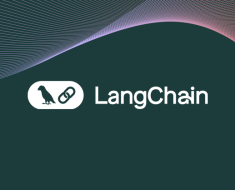
The landscape of biomedicine and health is witnessing a significant transformation, thanks to the rising influence of ChatGPT and other Language Models (LLMs). These artificial intelligence models are proving to be game-changers in various sectors, but their impact on healthcare seems particularly promising. 🏥
ChatGPT has been showing potential in several areas including biomedical information retrieval, question answering, and medical text summarization. It’s designed for human-like conversation which makes it an excellent tool for retrieving data effectively from vast repositories of biomedical literature. This can help researchers quickly find relevant studies or provide doctors with up-to-date information about specific conditions.
In addition to this, the ability of ChatGPT to answer questions accurately could revolutionize patient care by providing reliable responses to queries about symptoms or treatments. Its conversational nature allows it to interact with users naturally making complex medical jargon more accessible.
Moreover, its capability in summarizing lengthy medical texts efficiently cannot be overlooked either. Medical professionals often have limited time; hence they need quick summaries rather than going through extensive documents or research papers—this is where ChatGPT comes into play.
However exciting these developments may seem though, there are still some limitations that need addressing before we can fully harness the power of these tools within our healthcare systems.
One such challenge lies around privacy concerns as handling sensitive patient data requires stringent safeguards against breaches—a task AI systems might not yet be equipped for adequately enough without careful planning and implementation measures put into place beforehand.
Additionally while LLMs like ChatGPT show promise they also require comprehensive evaluations before being widely adopted across different aspects within healthcare settings due primarily because every individual’s health needs vary greatly therefore one-size-fits-all solutions often fall short when dealing real-world complexities surrounding personal health matters at large scales worldwide over longer periods given how rapidly both technology itself along side our understanding diseases evolve together continuously non-stop always moving forward relentlessly pushing boundaries further beyond what was previously thought possible even just few years ago.
In conclusion, while the rise of ChatGPT and LLMs in transforming biomedicine and health is undeniable, it’s crucial to address these challenges. Only then can we ensure that these AI tools will not only enhance efficiency but also protect patient confidentiality, ensuring a future where technology truly serves humanity.
![[eBook] alt= [eBook] alt=](https://aigumbo.com/wp-content/uploads/2023/12/823525l-205x190.jpg)



